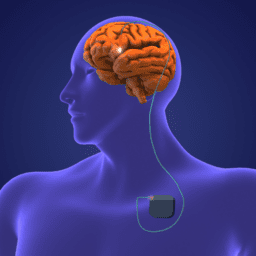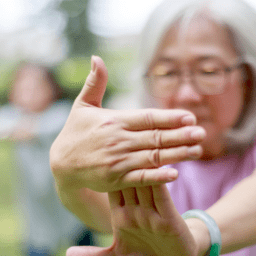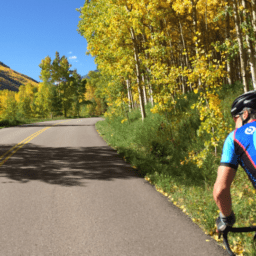Every first Tuesday of the month, care partners gather for our Parkinson’s Care Partner Meetup to talk about the various issues facing those who love and care for people living with Parkinson’s. Register here to join us in the future. You can always send your questions to us via this form. During our May meetup, our panelists shared their best advice about traveling. Here are some of the key takeaways:
NOTES
Written by our monthly Care Partner Meetup host, Connie Carpenter Phinney.
On May 2, we had a great Care Partner Meetup centered on travel tips, and I was joined, as usual, by Polly Dawkins and two of our Ambassadors, Gail Gitin and Pat Donahoo.
We shared helpful information – from panelists to our listeners and from peer to peer in the chat. We are grateful to all of you who showed up and those who are reading this now. We hope this detailed recap helps. As always, we have many links to share, and we trust you will find them helpful.
MEDICATIONS
Gail started by talking about ways to help ensure smoother travel with your person with Parkinson’s. She reminded you to bring all your meds and contact information for your doctors on board if you are flying. We also noted that you might want to split your meds so that they are not all in one place. For example, carry a day’s supply of meds in your purse or pocket and stash the rest in the carry-on bag.
HYDRATE
Although your person with Parkinson’s may want to be more dehydrated to avoid having too many pitstops, it’s not recommended for many health reasons. Being too dehydrated can lead to more problems with dizziness because your blood pressure may drop suddenly. This is called neurogenic orthostatic hypotension or nOH. Dehydration might also increase your risk of developing a deep vein thrombosis, especially during long trips. Staying hydrated is also good for enhancing mental clarity, so do hydrate and plan to use the restroom frequently.
DON’T FORGET THE REMOTE
If your person has had deep brain stimulation (DBS), pack the remote-control device and extra batteries. I like to call the device a jump-starter, which should be accessible in a carry-on like backpack or rolling suitcase. You can use it to adjust the settings and restart the pulse generator if it stops.
CARRY-ON LUGGAGE
Pat prefers to check most of their luggage so his hands are freer to help his wife. I prefer to travel with a four-wheeled rolling bag and backpack and, whenever possible, avoid checking luggage. You’ll have to decide which tactic works to minimize stress for you and your person with Parkinson’s.
ANXIETY
The added stress of travel can also raise your person with Parkinson’s level of anxiety, so be aware of that and try to keep it as calm as possible, knowing all symptoms may ramp up at any time. Gail reminds us to book flights during the day and to aim for nonstop. Please do your best to schedule needs like bathroom breaks and ensure your person takes their meds on time. Remember that stress and travel-induced fatigue may also increase mental confusion and anxiety. As the caregiver, try downloading the CALM or other meditation app so you can listen to a guided meditation or calming music once onboard the aircraft. TIP: Remember to download before takeoff, so you can access it when you are offline.
AIR TRAVEL
When you book your flight, also book your accessibility needs, like a wheelchair, with your airline. Consider upgrading to premium economy or early boarding (Pat used the example of how Southwest allows you to pay a little more to board early and pick seats first). I prefer sitting across the aisle from my person with Parkinson’s, so we both can get out of our seats easily, but that’s my preference. I use seatguru.com to be sure we are close to a restroom on longer flights. We also look for upgrades whenever possible to business class by using points accrued from travel.
Note: if you use the airport’s wheelchair service, you will typically receive priority status moving through the security lines.
Also, consider paying for TSA PreCheck or CLEAR – both are services that allow you to get through security with less stress in the priority lines. You can register for CLEAR at your local large airport (they have limited reach in smaller airports), but TSA PreCheck should be done in advance. If you also opt for GLOBAL entry to make reentry from international travel smoother, TSA PreCheck is included.
TRACKING
Gail recommended buying AIRTAGS or other devices like TILE to put on your luggage, in your wallet, and even on your person with Parkinson’s for tracking purposes. We have used these as well. Tile has small ones to stick on your computer or even your bicycle if you are worried about it being stolen. They help you keep track of your belongings through GPS and crowd-sourcing.
NOTE: Most smartphones also allow you to share your location, which my family uses to keep track of each other. Look up “share my location” to determine how to do that on your device.
HOTELS
When booking hotels, ask for ADA rooms when possible and stay on the lower floors of larger hotels. Polly noted that in the event of a fire alarm, the elevators might not be functioning, and if your person’s meds have worn off, it can be challenging to negotiate the stairs. It is also wise to book smaller hotels, which are often less chaotic. Pat advised you to call the hotel in advance or when booking to state your needs clearly.
An added note about booking on sites like Airbnb, they have filters you can use for accessibility, but we recommend you always send a message to the owner or manager of the unit with your specific needs and requests.
GADGETS
Gail said she liked to order urinals for her husband, Gene, and would often have some delivered to their hotel room, so they were there when they arrived. These portable plastic devices (male urinals) are easily ordered on Amazon or Walgreens, for example, to allow males to urinate without leaving the bed at night. Pat also reminded us to pack the type of motion-detector night lights we use at home. He also spoke about these in his gadget talk, specifically about using less sleep-disruptive colors like red. Someone also mentioned having Amazon deliver things they needed in advance, including grab bars that can be attached via suction cups.
MEDICAL INSURANCE
Evacuation insurance was recommended. I talked about how I buy an annual policy allowing an air ambulance to transport an injured person plus a guest from one hospital to another (of your choice). Look at either Global Air Ambulance or Med Jet Assist to see what they cover. I bought Med Jet with the AARP discount for 2023. These are not just for international travel but also if you are more than a certain distance from home. These medical evacuation policies will move you, as long as you are stable, from one hospital to another because you want to – not because it is medically required. Please note the distinction.
Some policies cover you to move you in an air ambulance only if you need more care, for example, in a larger city. Please read the fine print. For basic trip insurance, including medical evacuation, try Insure My Trip. However, note that most policies will not return you home; they will move you to a better-equipped hospital if medically necessary.
If you are on Medicare, please note what they cover when you travel out of the country.
FLUSH
Someone in the chat offered great advice to check out the FLUSH app to help you find public toilets near you when traveling! Look for it in your Apple or Android app store.
Someone asked what to do when you can’t get an ADA room. In their case, it was on a cruise. I made what could be an unpopular comment about considering whether the trip was worthwhile if you cannot be accommodated. This is entirely up to you, but it should be noted that if you have very specific requirements, your trip may only be successful if you are guaranteed what you need. Everyone is different in this regard and must weigh the benefits against the potential downsides of every trip.
HIRING CARE
In the chat, someone asked for help finding home health aides or someone to travel with them, and the franchise “Right at Home” was mentioned as being useful. I also find AARP to be beneficial for caregiver support and resources.
CAR TRAVEL
Taking trips by car is a joy because you can bring what you need, make fewer plans, and stop often and reroute as needed. Pat and I like this, especially because we often bring bikes. I talked about borrowing our son’s Sprinter Van for shorter road trips and how luxurious it felt to have so much space. We didn’t camp in the van but used it to change clothes, stow our bikes, and relax. You may have friends with these vans; don’t be afraid to ask them if you can borrow theirs and try it for yourself.
Another thing we touched on that is so important is asking for and accepting help. You may be surprised, as Pat was when he was taking a short hike up to see a waterfall with his wife, that people are eager to assist.
MORE GADGETS
If you are traveling and want to bring walking (trekking) poles or a cane, consider finding collapsible ones that are easier to pack into your suitcase or backpack when not using them.
And someone asked about making dining easier – this is such a great question. Gail suggested asking the kitchen staff to cut the meat or fish before bringing it to the table. Others suggested bringing portable collapsible straws. I thought the best solution might be to bring your own spoon (a nice big one would work best for us) and some wipes to help with spills and dribbles.
PACKAGED TRIPS
We talked briefly about group travel options. There may be some packaged trips out there that would suit you, whether specifically for those with disabilities or specifically for an interest you might have. Don’t be afraid to shop around and look for interesting, guided excursions or even consider coming out to one of our Foundation events -or some other Parkinson’s-specific event so you can meet other like-minded people with Parkinson’s and their care partners.
I also made a plea for you, the care partner, to take time and make space for yourself to get away when you can. It takes work; you must line up help and support, but it can be life-affirming and rejuvenating.
Happy travels, everyone!
ADDITIONAL LINKS BELOW
Would you like more information
on being a Parkinson’s care partner?
You can learn much more about living well as a Parkinson’s care partner today through our Every Victory Counts® Manual for Care Partners. Click the link below to get your free manual now.
Thank you to our 2023 Peak Partner Amneal for allowing us to make the manual for care partners available and free to all.

















